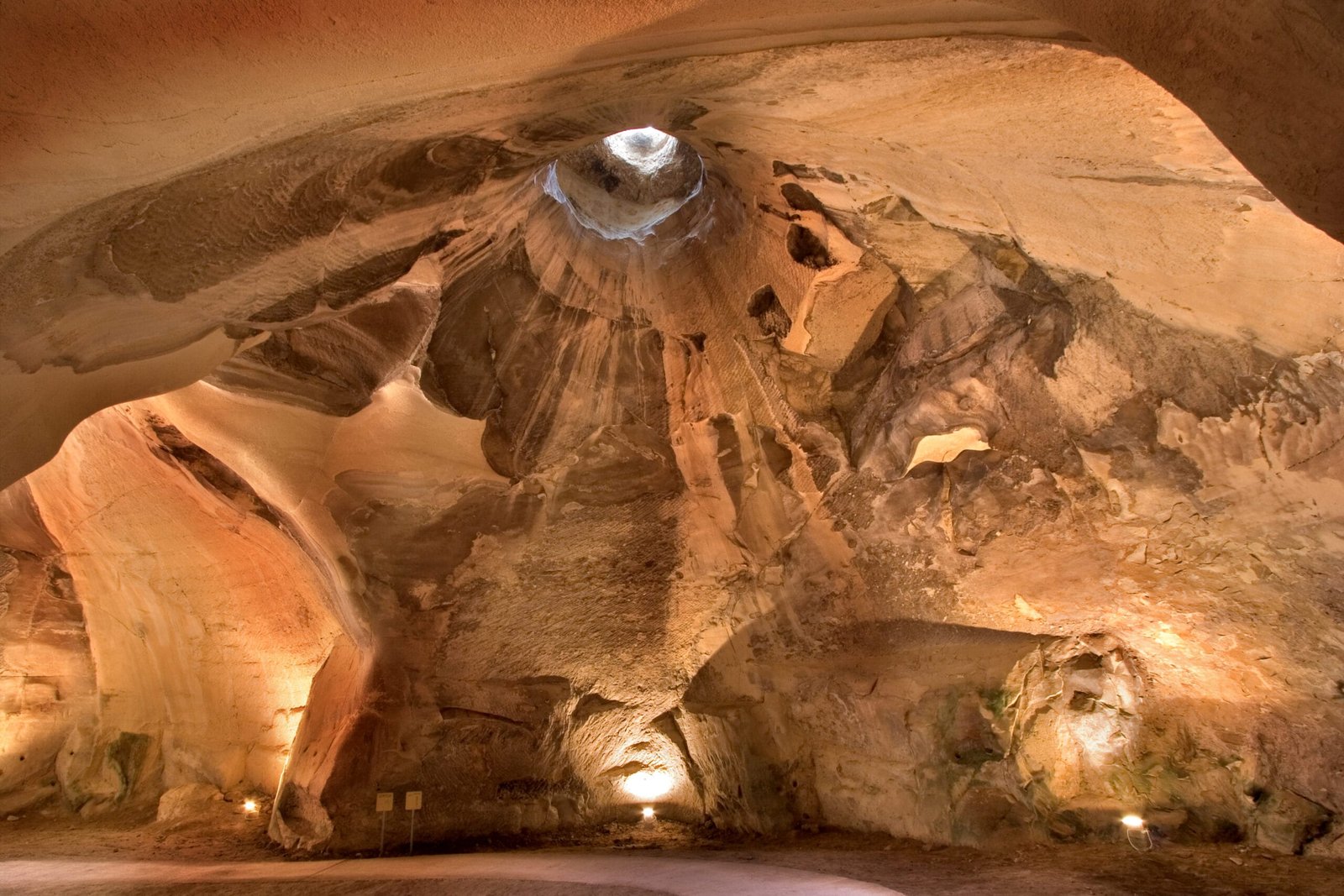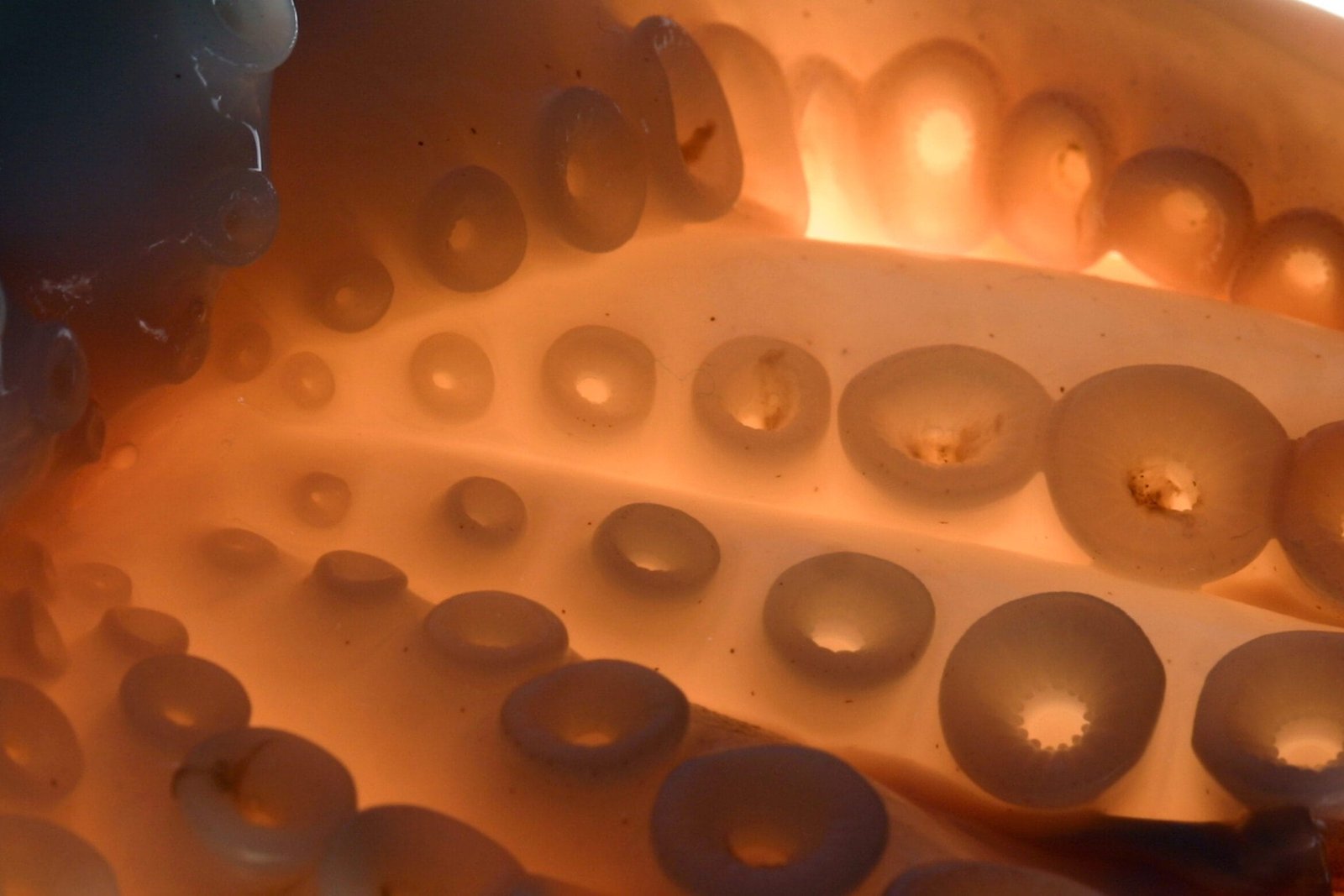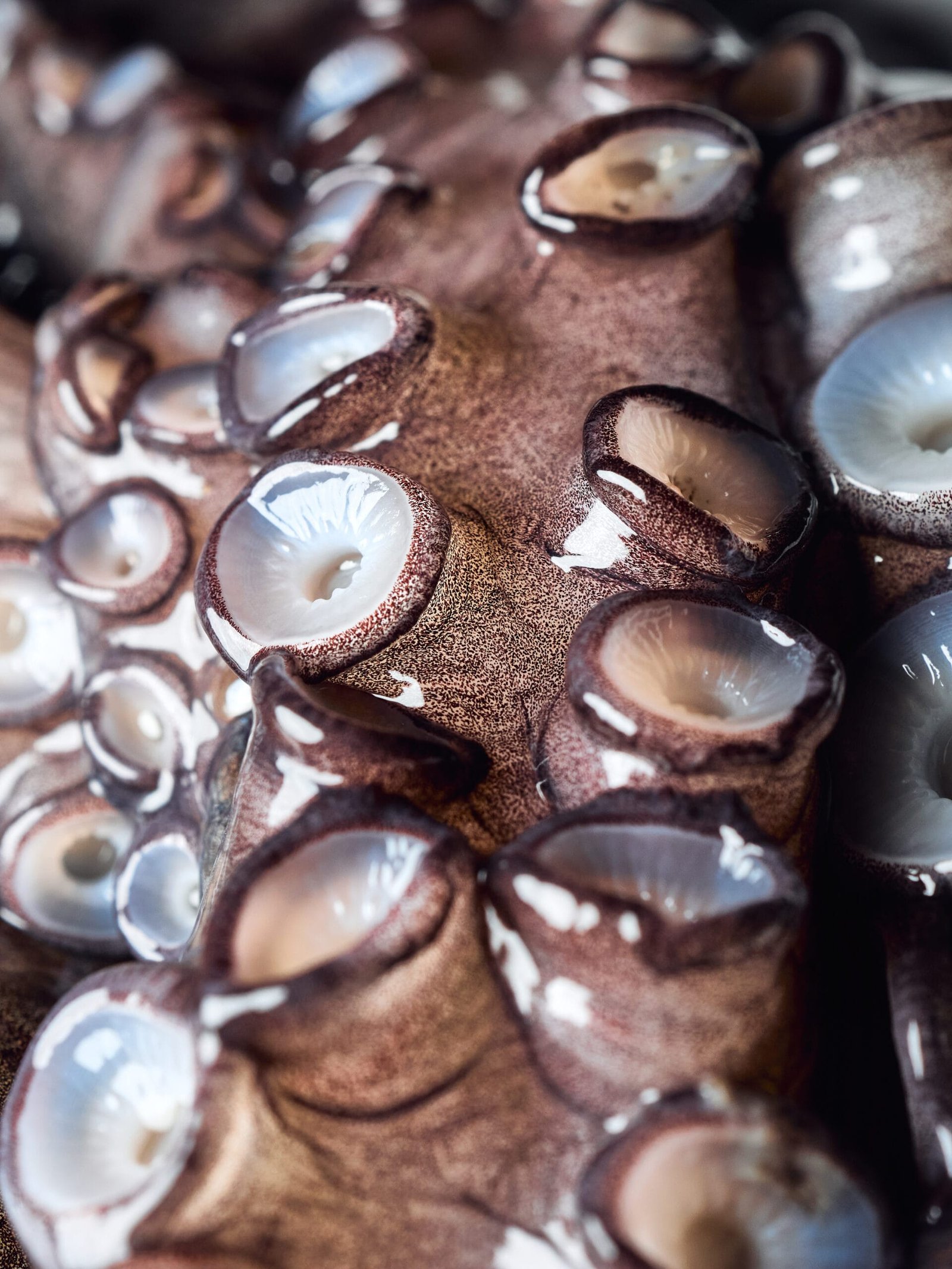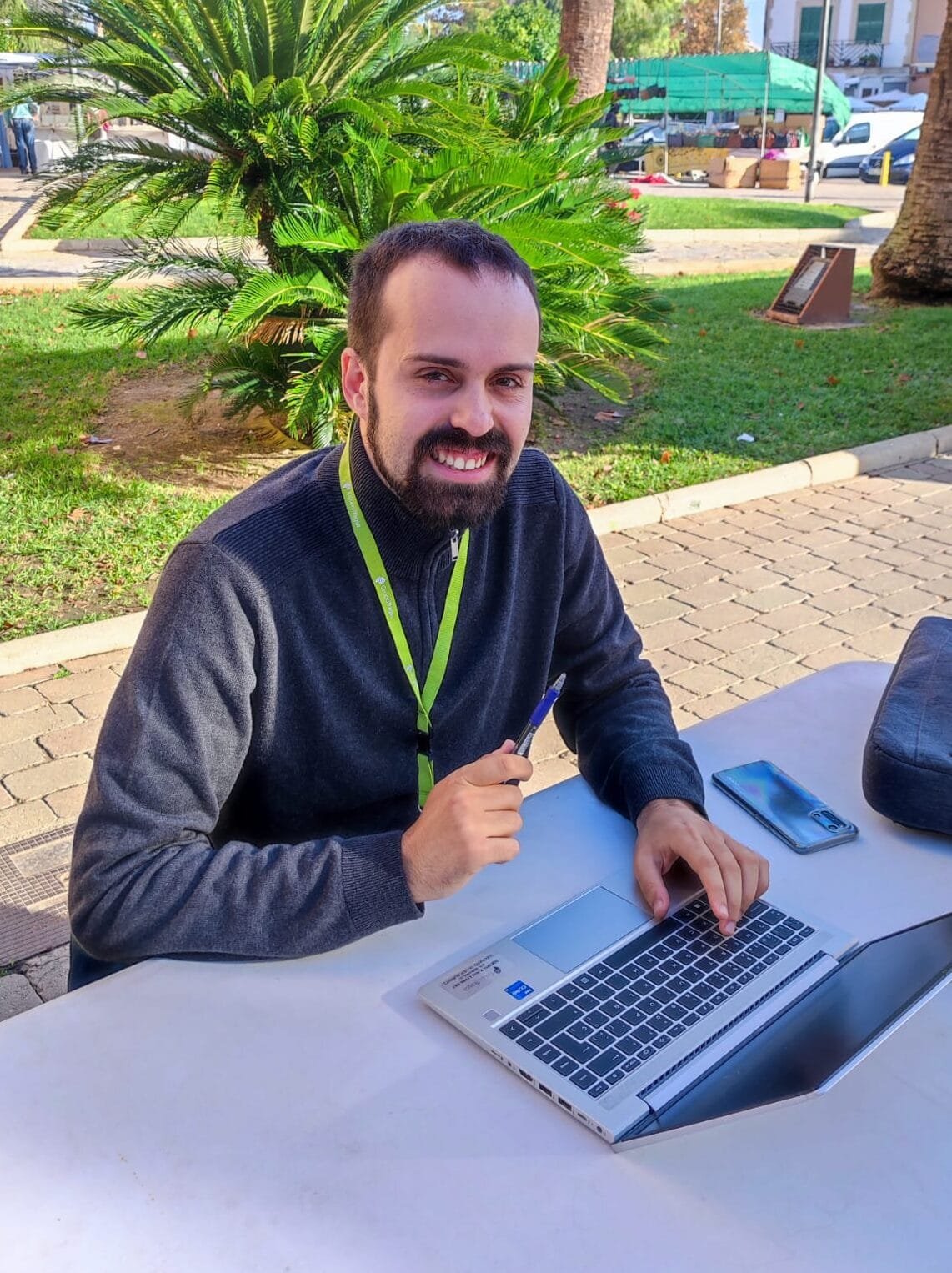A short story by Lleondard “Xeixa” Oliver Burwitz
Originally written in Mallorquín. Translation by Christian Monson
Once upon a time, on the brightest and hottest summer day you can imagine, as the sun scalded the rocks, the animals dared not step foot out of the shade, and the pines were sweating sap. Catalina was gathering figs with her sister and father on the Mata Vella estate, at the foot of the Puig de Randa mountain. It was the last summer they could, before the new owners would come and plant exotic gardens, turn the irrigation ditches into swimming pools, and who knows what else.
At the first crow of the rooster, they were already near the silhouette of Randa, standing bravely as it was against an arrogant sun conquering a night which had not yet cooled. Soon they were climbing the fig tree ladders and carrying baskets from the trees to the cart. But that year, the trees had decided to gorge themselves, and the work to pick their fruit seemed never ending. The higher the sun rose, the slower they went and more tired they got. Not even the wasps protested when figs were taken right from under their noses. The poor harvesters struggled like a family of stubborn donkeys and sweated like a fountain, though, as for water, they were running out.
Realizing they wouldn’t finish before midday and that even the cicadas had stopped singing and had turned to panting instead, Catalina’s father told them to take a break. While her little sister helped their father with the cart, Catalina was tasked to go to the Cave of Albenya to see if there was any water left.
With a jug in each hand, Catalina made her way. She used to go to Albenya as a child, but it had been years. Once, the cave had been a hideaway for her and her cousins on summer nights, a place for secrets and gossip. If walls could talk, oh what tales those would tell, the rants and adventures of people who might seem so foreign to who we have become. With a faint smile, she arrived, not knowing the adventure that still awaited her in that cave.

The cave faces north and, past the first gallery, there is a series of chambers and corridors that trap the cool air. That’s where farmers, plowmen and shepherds used to keep food and drink for workdays. As she stepped inside, a freeing coolness crept up from her feet to her head. She blushed in the cool darkness of the Cave of Albenya, at the foot of the cliff. She took a deep breath as if it was the first of the day, then she grabbed the lantern her father told her was kept at the entrance and inched her way in.
But let me warn you, if you ever go to Albenya, at the foot of the cliff, wear thick espadrilles, not flimsy avarcas. I tell you this because Catalina tripped and had quite a scare, tumbling down the sloping passageway into darkness and hitting her head on a corner. Still dizzy, she tried to get up in the dark, which only made it worse. She slipped and fell down a hole. I can assure you that at that moment, Catalina was so startled that she let out a scream loud enough to wake up all the stones around her. Catalina fell and shouted in terror, thinking it was the end.
Yet the poor girl was still falling when she ran out of air to scream. The rush of adrenaline fell away to wonder at what was happening. And it was right then when suddenly, thump! Catalina landed safely and unharmed on a flexible, gummy surface. Still shaken, she took a minute to compose herself. She could smell the sea. It seemed like she could hear the murmur of waves, and a faint light filled a vast space with shadows. It was as if it were a huge dome sprinkled with tiny points of light. If she didn’t know she was underground, deep underground, she might have thought it was a starry sky of unknown constellations.
Though it was a large space, it was surprisingly empty; it seemed that the whole of the Serra de Tramuntana could fit inside. Even so, Catalina noticed that only a single column supported the colossal dome. Then she realized she had landed on what seemed to be a giant suction cup, as big as a threshing floor. And what had seemed like the rock of a wall turned out to be… an octopus! An octopus bigger than the Puig de Randa, camouflaged on the wall with his tentacles wrapped around the lone column. It was Father Octopus Atapot, an illustrious figure of Mallorcan history.

No one remains who can tell us of the times the world was new and Mallorca still lay beneath the oceans. Or so it had seemed… Because you should know that time passes and memories shrivel like a raisin, but legends are the thread with which we weave today from yesterday. And that’s why you should listen if you truly want to spin your future. Lend an ear and raise your eyebrows, for I will tell you the secret that our island holds in its heart.
Like everyone who has ever lived, Mallorca was born at some point and someday will leave this world. As a mother, she had the Earth, who shaped it in her womb, and as a father, the Mediterranean Sea, who cradled her among his waves. And you best believe, that Mallorca, newly born, was as beautiful and as striking a daughter as any other that has floated on salty waters. Her rocky, white limestone skin. Her body, the earth we walk on, is tough and furrowed with the geological muscles that are the mountain ranges flanking her figure. And yes, it is also known, by those who listen, that Mallorca is hollow inside. Her caves and chasms connect an impassable labyrinth that ends in the great hall where Catalina and Atapot, the Father Octopus, found each other.
Thus it was born, and thus began the story of the proud elder sister of the Balearics. And so attests Atapot, the Father Octopus, the savior of our protagonist. They say Atapot was already old when Mallorca was born and will see the day when she will sink again. Among octopuses, he is the greatest and wisest of all. And as a wise creature, he has nested in his grand cephalopod head legends, knowledge and rumors for which a lifetime is not enough to hear.

Upon seeing the great octopus Atapot, Catalina first had to thank him for saving her from certain death. Atapot, the Father Octopus, with a deep yet benevolent voice, excused all inconvenience and introduced himself, and the two became friends. Catalina looked at him in wonder; she had never seen anything like him and would never find anything quite like him again. Not only was he tall, but also as wide as the day is long. His eight arms stretched throughout the room and it seemed like he could steal the keys to Heaven from St. Peter while tickling the devil’s horns. On his arms were suction cups of all sizes that sucked with confidence and strength. In fact, octopuses, and especially Father Octopus Atapot, have a large part of their brain in their arms. Imagine having thoughts in your fingers and keeping everything you learn in your feet. You would tie your shoes as if you were breathing and write with two pencils in each hand. Each arm has its own skills and different memories, which make octopuses extremely intelligent and sensitive creatures. Atapot’s eyes were black and deep, full of curiosity despite his age and experience. His skin changed depending on where he sat and his mood. Catalina listened to him fascinated as if she were a child again with no more worries or responsibilities beyond the cave.
He told her that he had lived here, in the hollow of Mallorca, for millennia, and that he took care that the columns would not fall. Yes, because before there were four columns. At first, he just watched over the creatures that appeared on Mallorca and learned everything he could about them. He saw how the first oaks arrived, learned to chat with the hoopoes, felt how the sea dried up and returned, and also of course, he saw how the first humans came. Then everything began to speed up.
For him, it was a complete surprise. Within a few millennia, humans settled down and gave the island a sense of home. They cultivated the land and sea of Mallorca and formed a unique and distinctive landscape. Sometimes they coexisted, other times they fought, but they were aware that living on an island, they would ultimately have to work together.

Carlos Andres | Dreamstime.com
Atapot, the Father Octopus, felt and saw it all from the hollow of Mallorca. He was so busy following the adventures and misfortunes of humans that he ended up with a certain love for them. Atapot, the Father Octopus, saw the presents and the hugs the humans gave one another and, inspired by the idea, wanted to make his own special show of love. Atapot, the Father Octopus, tucked away in one of his three hearts all the love for humans who have lived, and still live, on Mallorca. As a sign of the shared beauty enjoyed by all, animals and plants alike, Atapot, the Father Octopus, would stretch his arms through caves, chasms and wells, and give a small kiss with his suckers to all the people who knew and respected Mallorca. And with this gesture, he magically bound the humans with a desire to be on Mallorca. He could never have imagined the consequences his actions would have.
Years and years passed, generations and songs, ramparts and centuries… and things began to go off course like a cart rolling downhill without a horse. Atapot knew something was wrong the day the first column fell. He was very sorry because he had not interpreted the signs well, and humans had begun to drain the wetlands so that they could cultivate and build more. Within a few years, the first column cracked and fell, and the remaining three shuddered. Father Octopus Atapot wanted to trust that human growth would then be more conscious of the danger they’d created.
Woe unto them who trust they can satisfy the greedy! A few decades passed and the second column began to crack. The columns could support the weight of people but not their wealth. And so, when they began to drill into the earth and level entire mountains to build hotels and summer homes on the edge of the coast, the beaches and dunes began to recede, and the ports were expanded. Forests and farms were covered in grass for new golf courses, and the second column finally fell.
Frightened and with dread in his heart, Atapot clung to the two remaining columns with four arms as if his life depended on it, while with the others, he continued to kiss everyone in a vain attempt to restore love to Mallorca and the preservation of her landscape. And yet, the destruction of the island continued: the urbanized coastline, the wounded mountain, the conflict-ridden city, the disconnected villages, the abandoned countryside, the deliberate fires… Tourism hurt Mallorca, and even today we suffer consequences that will not be alleviated for several generations. Each summer, the weight of all the rental cars, the cruise ships, the private jets… was another blow that eventually broke the third column.
For the people of Mallorca, it was just a small earthquake that went nearly unnoticed. But Atapot, the Father Octopus, knew all too well: Mallorca would sink back into the sea. Randa would fall, so would the Pla and the Raiguer, the Serra de Tramuntana and the Llevant, and finally Migjorn. And all the beauty he had seen from the hollow of Mallorca would fall. Catalina heard this with tearful eyes and a heavy heart. She knew how Atapot felt and embraced one of his arms.
Brave and determined as she was, Catalina said to him, “Listen to me, Father Octopus Atapot, you have shared a wealth of wisdom with me that I cannot return, but I want you to know this: we cannot give love to those who do not want to return it. You cannot share the charm of this island with those who destroy it and steal its beauty, nor can you kiss them. If they do not work to preserve Mallorca, they need not return. Enough of standing idly by! We cannot afford to be consumed by sadness; thus surely will we sink. Give me your arm and look into my eyes. You must use all eight of your arms to support our last column. Now there will be no more charm born of the kisses and beauty of Mallorca; you’ll have to earn it with living sweat! I will help you, Father Octopus Atapot.”
For the first time, Atapot, the Father Octopus, felt such support for his work and dedication. So grateful he was that he raised his longest arm and lightly, harmlessly removed the smallest sucker he had. It was just the size of half a pea. He placed it on the long finger of Catalina’s left hand, close to her heart. Then, with determination, Catalina and Atapot, the Father Octopus, said goodbye and farewell with all the emotion of the moment condensed into a tender parting embrace. Gently, Atapot wrapped his arm around her and lifted her up into a dark hole. She felt how delicately he sat her down on the ground, and as she got up, as if waking from a dream, she heard the eternal arm of Father Octopus Atapot drawn towards his new and final purpose of holding up the last column until the end.
Nevertheless, she had to go toward the light that she glimpsed between the cracks of the Cave of Albenya, at the foot of the cliff. Crawling, she found the entrance gallery and from outside she heard her father and sister calling for her. Two bottles of fresh water awaited her as if they were placed with care and precision of a watchmaker—or an octopus. Upon leaving the cave, as she called back to her family, the heat made her retch because it had grown yet heavier. But now she had a new strength, born from her heart, on the long finger of her left hand, a small red dot of love to spread to whomever truly deserves to be a caretaker of Mallorca, our island, in a balance definite and irreversible so as to keep us from sinking. And there you will find Catalina not only setting an example by picking up trash, but also pulling the ears of those who litter, and staying devoted to cycling and public transport and scolding those who do not follow suit.
And you can imagine again a day of unparalleled heat gathering figs under the beating sun that scalds rocks, just as Catalina did, but then you will also have to think that each summer will be hotter and hotter and drier and hotter… And Catalina, when she returned home with her family, called all her cousins for dinner one day and on the wall there was a photo of all of them as children in Randa with a sky free from airplane fumes. “We will have to work to survive what those who came before did not want to work on.” And miles below, beyond the Cave of Albenya, at the foot of the cliff, sunk in the darkness of the hollow of Mallorca, Father Octopus Atapot, tightly clinging to the column that supports Mallorca, smiles when he sees the effort to make Mallorca float again that is blossoming little by little on the island.
And thus, story told, story ended, and if it’s not a story, then it may be true. If we don’t go living, soon we’ll be dead, and those who don’t believe it can go and see for themselves.
About the Author: Lleondard “Xeixa” Oliver Burwitz

Life welcomed him with sensitivity, in Valldemossa. It took him two times to learn how to speak, one to know the words and the second to use them. As a native trilingual reader, he was born in a family branched around es Pla de Mallorca and from refugees re-rooted in the island. He lives listening because he has found close people that are magnificent orators. And from all the reading and listening he found this literary spark that grows with him. In 2022 his poem “El retorn de Melesigeni” won first prize, awarded by CEIP Costa i Llobera. Then in 2023, he took second prize in the Premi Antonia Vicens, from Joves per la Llengua, for his poem “Ésser de doldre, sobreposat.” His formal education is in Environmental Sciences (UAM) with a speciality in Land Management (UAB-UNISS) and Environmental Education as regional curator for the TNOC festival. This is combined with his other avid endeavors: Theatre, which he performs with Enredarts Co., and education through volunteer scouting. To know Xeixa is to know his milestones, which is why he never stops walking.

